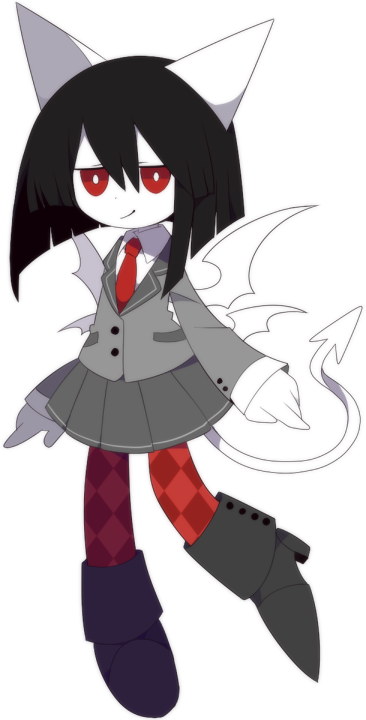

The other problem is that thanks to YouTube uploads, being able to view multiple endings no longer requires you to replay an entire game (perhaps in response to this, many games now have in-game rewards for getting different endings). Video games have the technical means to solve said problem with an Old Save Bonus, wherein the previous game's conclusion becomes the player's personal canon in the sequel. This invariably occurs in adaptations to other media, such as novels, comics, and television. The major problem with Multiple Endings is that the sequel, should the developers decide to make one, obviously has to pick only one ending from which to continue the story probably one of the good ones.

Some designers include truly "neutral" multiple ends, letting the player decide whether they're good or bad.
The Joke End, perhaps the rarest of all: some games contain joke endings which are usually the most difficult to obtain, generally requiring the player to use some MacGuffin or play in a totally nonstandard way. Bad Ends are, paradoxically, sought out in certain dodgier video games. The phrase BAD END itself is an Iris Out-type meme, well-recognized in modern parody. The longer and genuinely Bad End, where the more devoted but failed gamer is rewarded with a more prolonged, but depressing and/or outright disturbing ending. The variably-used Poor End, when the player makes a decision that prevents the story from progressing any further for obvious reasons, making this ending effectively a Non Standard Game Over. As the name implies, this is the best out of several possible "Good Ends", and almost always overlaps with the Golden Ending. The Good+/Best End, where all the available content is opened up or shown. Also, don't be surprised if there's a True Final Boss at the end of this road. The "True End" often overlaps with the Golden Ending, but not always. The "True End" usually reveals most if not everything that happened in the other storylines, while some events remain mysterious even when the "Good End" is achieved. When it is still locked, trying to get the "True End" usually results in the "Standard End" or "Bad End" below. It basically forces the player to finish the game with the "Good End" in order to unlock the path of the true story. In many Dating Sims, this ending may not be achievable if other endings are not achieved yet. The True End, the primary plot ending of a game that has multiple endings. 
In dating sims, this is usually the one where the player character gets laid. Sometimes referred to as the Golden Ending (especially if the lesser options simply aren't that good).
The Good End, one or more character-specific endings on a positive note. Alternatively, it ends the story on a decently happy note, but leaves some massive plot threads hanging with minimal resolution. This is usually very short or unfulfilling, such as a blank staff roll, if the game is trying to push 100% Completion on you. The Standard End, which usually involves the least effort by the player. (These can include the Forces of Evil!) The most diverse examples are found in Visual Novels and Dating Sims, including but not limited to: Sometimes there are dual-optimal endings depending on which side the player chose to be on. What determines the ending usually involves the path one takes through the game (which can be as simple as choices the game gives in the prompt or as complex as entire alternate levels), whether one completes the 100% Completion, how well one plays the game (generally, scoring high is good and using continues is bad), other characters' Relationship Values towards you ( including the Alliance Meter), and/or how high the player got the Karma Meter. Generally, multiple playthroughs are necessary to see all the content, and possibly to unravel certain mysteries. Different strategies or levels of skill in play will result in different endings, rather than all leading to a single predetermined conclusion. Multiple Endings are the most commonly seen form of Story Branching in video games, used primarily to increase their Replay Value, especially visual novels, role playing games, Survival Horror, dating sims, and fighting games.







 0 kommentar(er)
0 kommentar(er)
